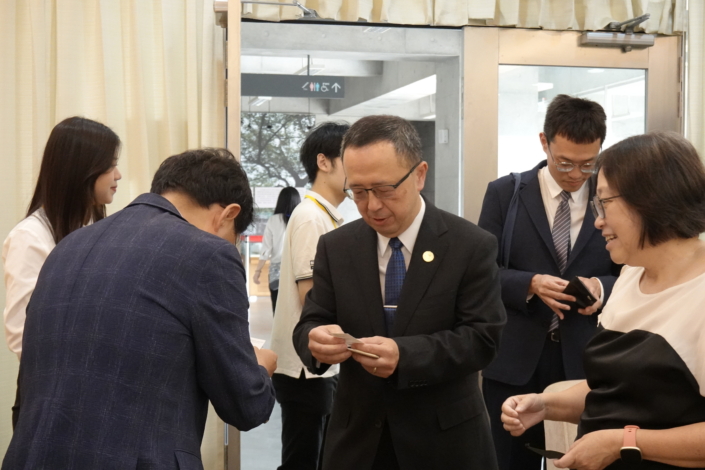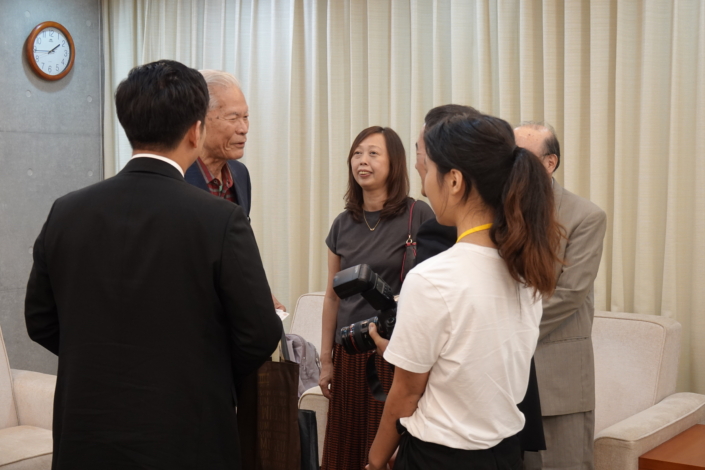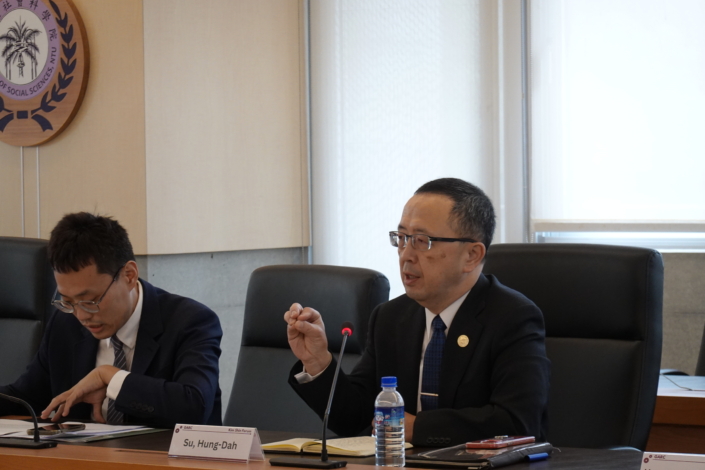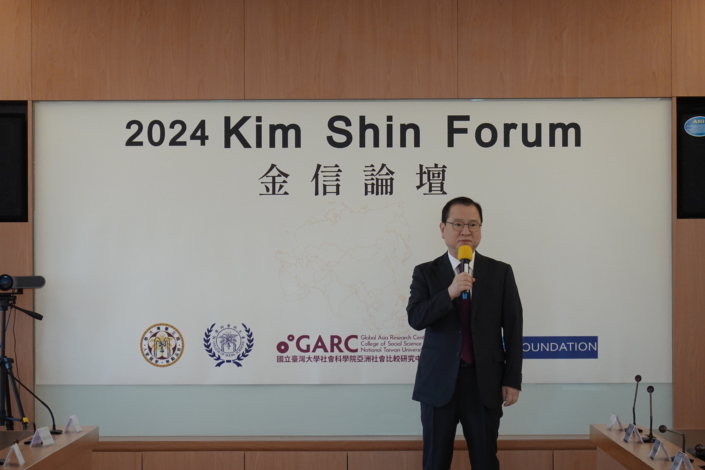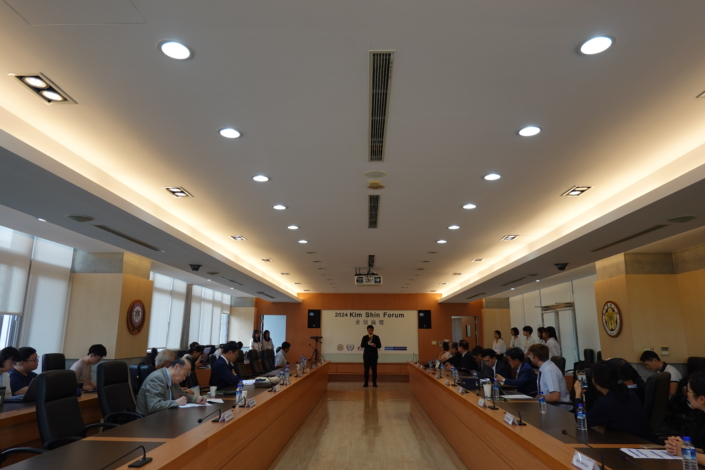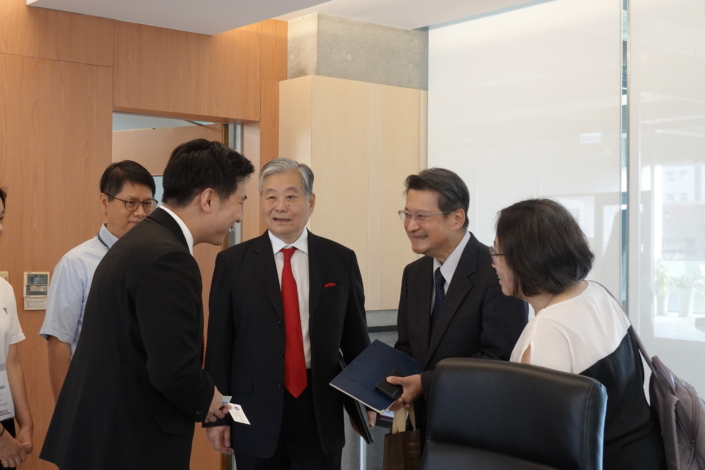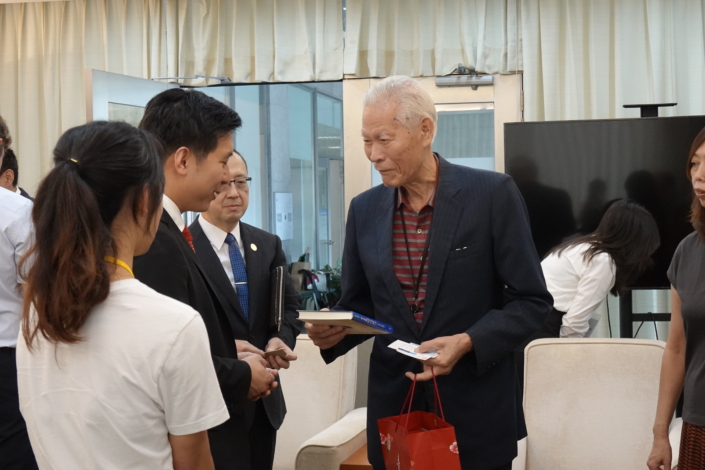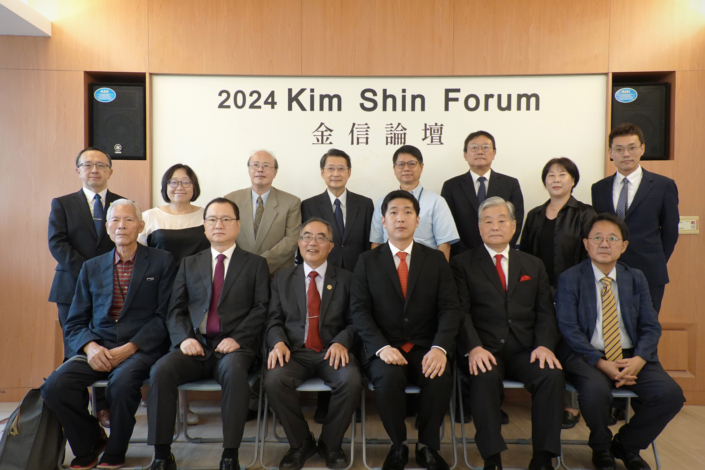2024Kim Shin Forum
The Kim Shin Forum finally returned to National Taiwan University this year, in a hybrid format, after the disruption of international travel due to the COVID-19 pandemic. Taiwan and South Korea share deep historical, social, cultural, economic, and geopolitical ties, playing a key role in shaping the new East Asian order. This year’s Kim Shin Forum explored the political characteristics and democratic development of both countries through academic presentations on East Asia’s modern geopolitical changes, while also looking ahead to the role Asia can play in the emerging international order. We hope this forum will deepen Taiwan-Korea cooperation and academic exchange.
The forum was divided into three sessions. It was opened with remarks by Professor Wen-Chang CHEN, the President of the National Taiwan University (NTU), and Mr. Dong-Man KIM, the Director of the Department of Overseas Business, Kim Koo Foundation, followed by brief speeches from Mr. Bong-Kyu CHOI, the Deputy Representative at the Korean Mission in Taipei and Ting Joseph SHIH, the Former Deputy Foreign Minister and Representative to Korea. The first session focused on the historical ties and commonalities between South Korea and Taiwan, featuring presentations by Professor Tae-Gyun PARK from Seoul National University, Professor Yi-Hao SU from National Taiwan University, and Dr. Keiran MACRAE from Seoul National University.
Professor Tae-Gyun Park’s research focused on U.S.-Korea relations, noting the similarities between U.S.-Taiwan and U.S.-Korea relations. He pointed out that the U.S. seeks to curb the expansion of Chinese political influence through its partnerships with these two democracies, and strengthening Taiwan-Korea ties with the U.S. can enhance East Asia’s regional security. However, he argued that U.S. diplomacy is dual-faceted: while promoting open trade to establish positive relations, it also exerts military control over East Asian countries, thereby affecting their trust in the U.S.
Professor Yi-Hao Su analyzed historical documents to explain the necessity of Taiwan-Korea geopolitical dialogue. He highlighted that Taiwan and Korea’s similarities in political legitimacy, national development, and democratic systems have fostered a willingness to collaborate. Moreover, their shared collective memory and moral consciousness have strengthened the emotional resonance between the two nations, further consolidating long-term cooperation among political elites.
Dr. Keiran Macrae examined the political distinctiveness of Taiwan and Korea through the theoretical framework of developmental states. He argued that while the developmental state theory is typically associated with post-WWII Asia, its shortcomings remain evident. Many countries experienced rapid development as early as the 16th to 19th centuries, and the modern developmental states often fail to see democratic development keeping pace with economic growth. This has led some proponents of authoritarian economic policies to use the developmental state theory to justify strong state intervention, a topic that requires further exploration.
The second session focused on contemporary East Asian regional security. Professor Szue-Chin HSU compared the Xi Jinping and Mao Zedong regimes, suggesting that both excessively mobilized state power to suppress or control social movements. This overreach could exacerbate social conflict, leading to internal instability. These internal pressures may shift China’s focus towards domestic stability but also heighten external policy risks, thereby impacting regional security.
Professor Hung-Dah SU discussed the possibility of East Asia adopting a regional cooperation framework modeled after European political cooperation. He noted that the governance of East Asian maritime regions could align with the political and economic development goals similar to Europe’s Mediterranean-centered transnational governance. Given East Asia’s pivotal role in the global high-tech supply chain, a transnational governance framework could strengthen its international political influence while maintaining regional political stability.
During the presentations and the final comprehensive discussion, scholars and attendees from various disciplines, including history, politics, economics, and public administration, actively discussed the political and economic landscape of East Asia and the prospects for future regional integration. The forum concluded on a high note, with participants expressing eagerness for future exchanges to further explore key issues related to Asia.
Written by Chao-Kai Hsu, edited and proofread by Hsiang-Yun Chang and Wei-Yun Chung

